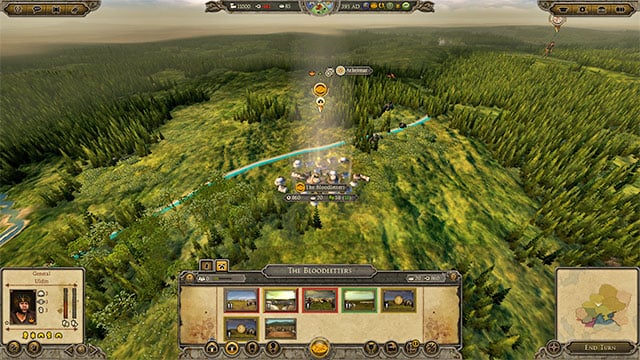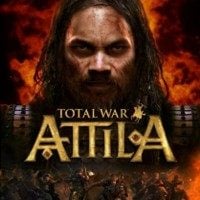Total War Attila: Horde

The difference between Horde and any other faction is in its mobility. Stationary countries have armies and settlements. In case of Horde army and settlement is one and the same thing. Faction loses Horde status when it takes the first province. Huns are exception, as they don't have such possibility.
Horde status is given to any faction that has lost its last province or decided to migrate. Exceptions are empires and other large, civilized countries, that don't have the option to migrate. Preparation to migrations doesn't have a basic cost and last one turn. After it finishes all your cities will be abandoned. You get a great financial bonus and your budget starts glowing red as you no longer have any profits from buildings or trading. You keep control of all armies, fleets and agents. Armies take all functions of settlements. Only exception is commodity production, which isn't important as Horde can't trade. Horde doesn't have any capitol as well.
Horde doesn't need to worry about sanitation and its armies can't trade food. General and governor are in case of Horde one and the same, and order and army integrity are considered one thing. Taxes level, and specifically penalties for high taxes, change as well.
Horde camps have ten slots for buildings. New places show automatically after using the previous one, but they still need population surplus for unlocking them. Additionally, Hordes have much less building categories than stationary factions, so there is no problem with them doubling. It is important, as most of them have at least two, in some cases even five development paths.
By using action points Horde can both travel and replenish armies or place buildings. For that, you must place a camp, which uses all action points available in turn, but have many positive effects, like raise of profits, growth or integrity. Horde either moves, or create buildings, recruit units and replenish loses.
Playing Horde is very different than playing with a stationary faction. Horde most of its profits gets from raiding settlements and provinces and from gifts from tributary states. It can't stay for too long in one place, as it reduces the wealthiness of a province, which in long term causes emigration from settlements. So it must remain in constant move, searching for new money sources and keeping attention to budget. Most of its diplomatic contacts will be declarations and military deals. Because of that, Horde is a good choice for those that want to focus on combat.
Second objective of most Hordes is finding a new place to settle in. Migration order usually serves the purpose of abandoning currently possessed regions to move people to new, better ones. In case of Huns it is impossible, but for barbarians like Ostrogoths it should be a priority. For long term having a Horde is very hard or not profitable both for military, and economical reasons. When playing as migrating faction, you should at the beginning of campaign check the victory objectives, select a province that is closest to you from the list required to conquer and move in its direction, on the way putting on fire, robbing and gradually expanding army and camps. After arriving at the target you should take the settlement and continue the game as a stationary faction or, if situation requires that, start another migration and move to a different place.
You are not permitted to copy any image, text or info from this page. This site is not associated with and/or endorsed by the developers and the publishers. All logos and images are copyrighted by their respective owners.
Copyright © 2000 - 2026 Webedia Polska SA for gamepressure.com, unofficial game guides, walkthroughs, secrets, game tips, maps & strategies for top games.
